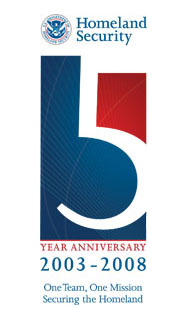
| Home | Information Sharing & Analysis | Prevention & Protection | Preparedness & Response | Research | Commerce & Trade | Travel Security & Procedures | Immigration |
| About the Department | Open for Business | Press Room |

The threat level in the airline sector is High or Orange. Read more.

« Office of Gulf Coast Rebuilding
This page was last modified on October 23, 2007